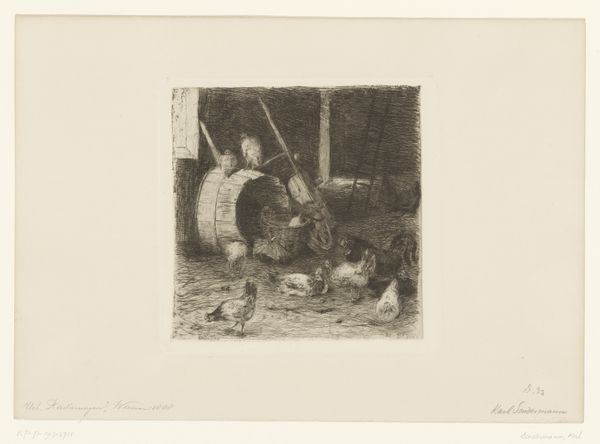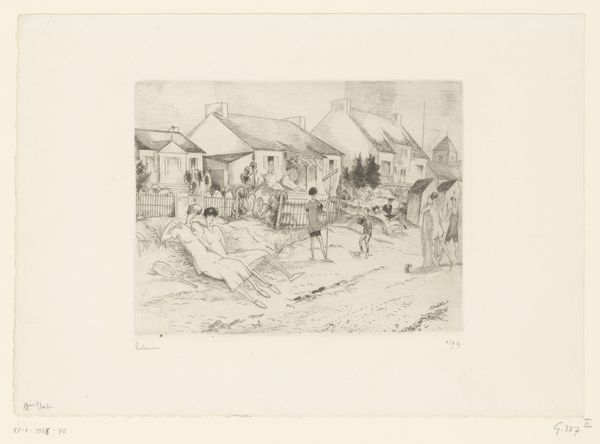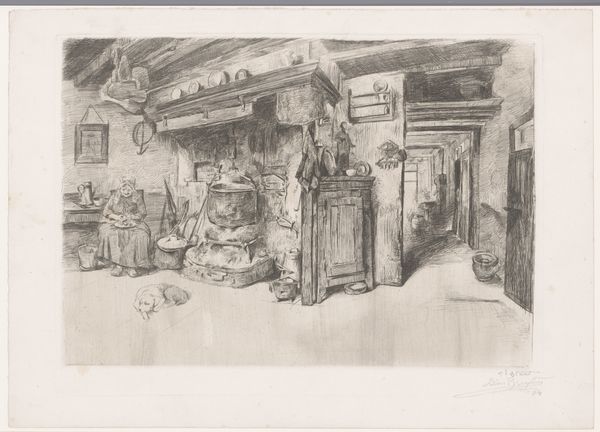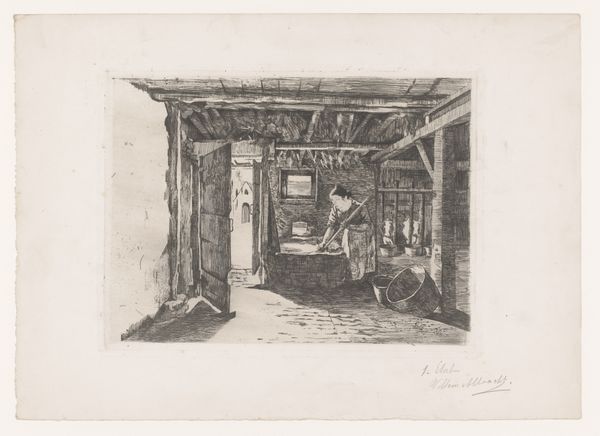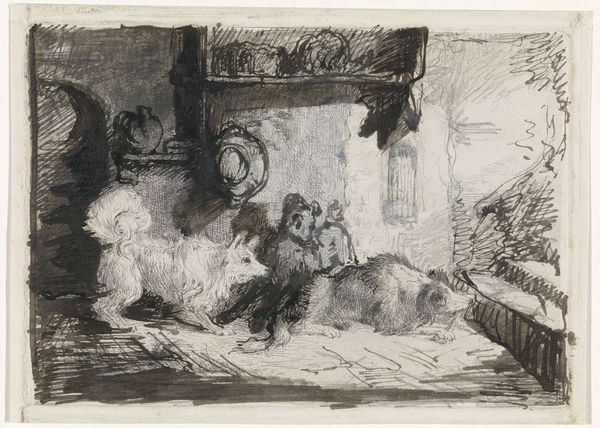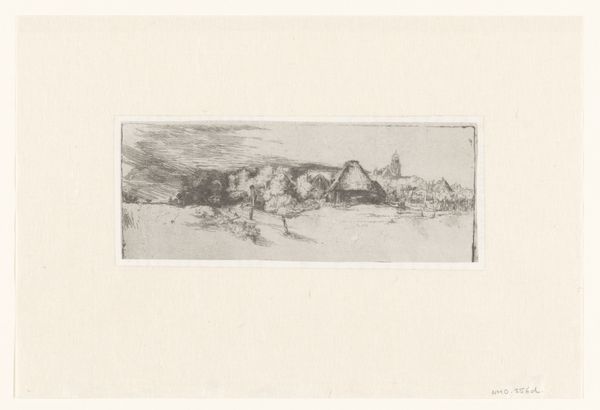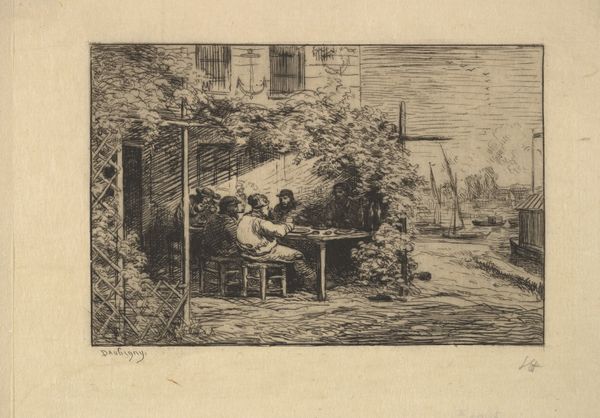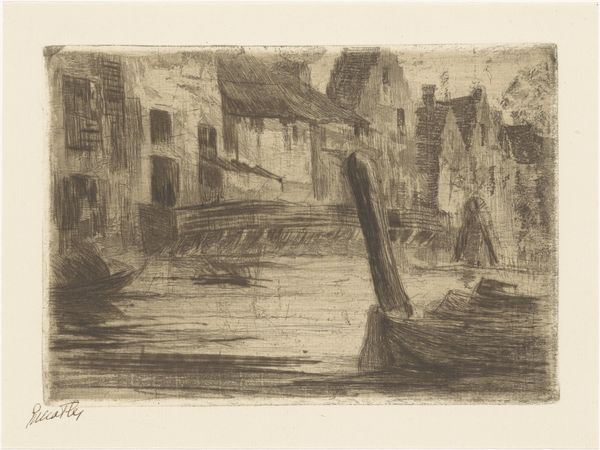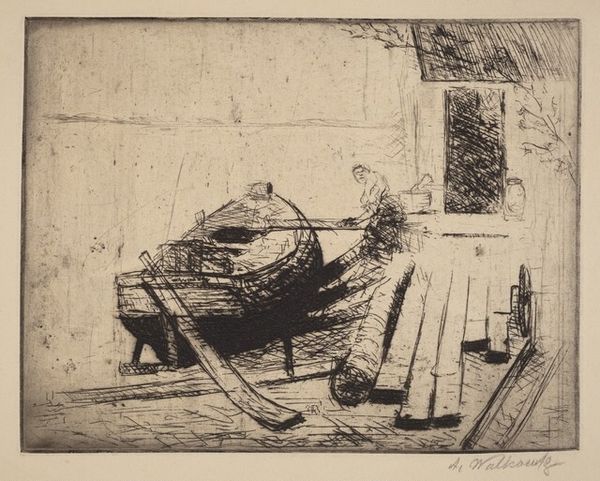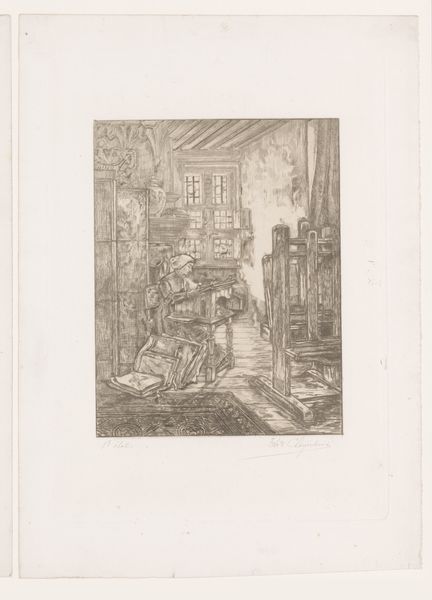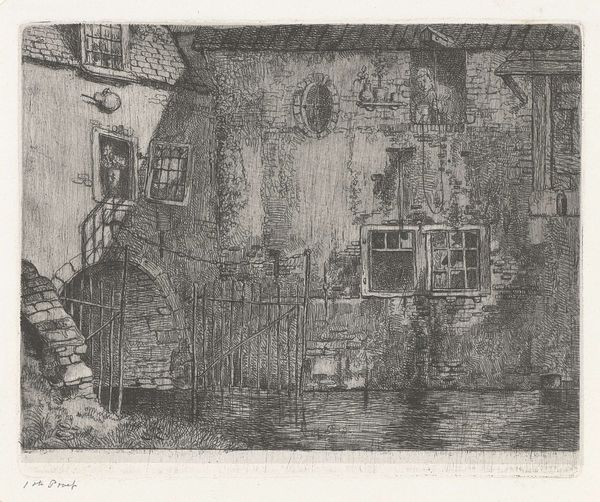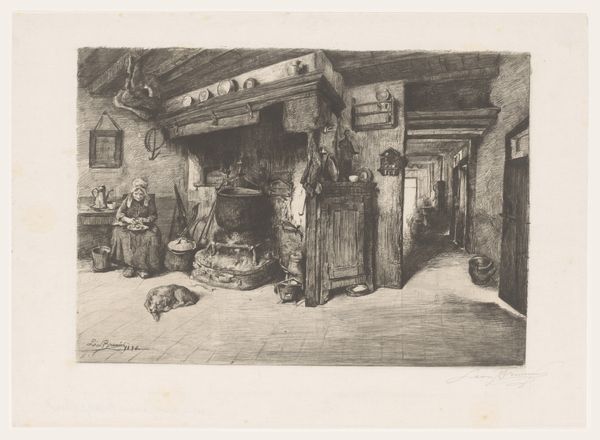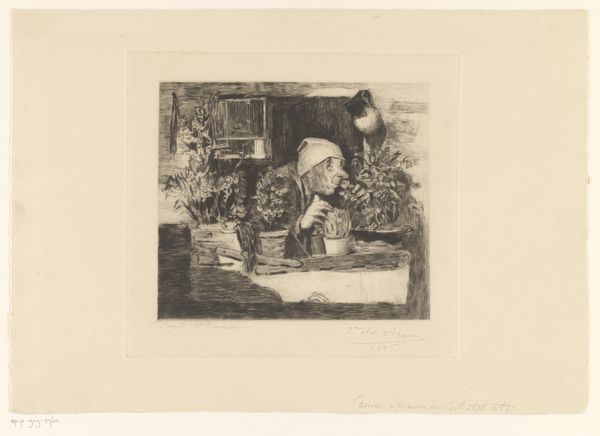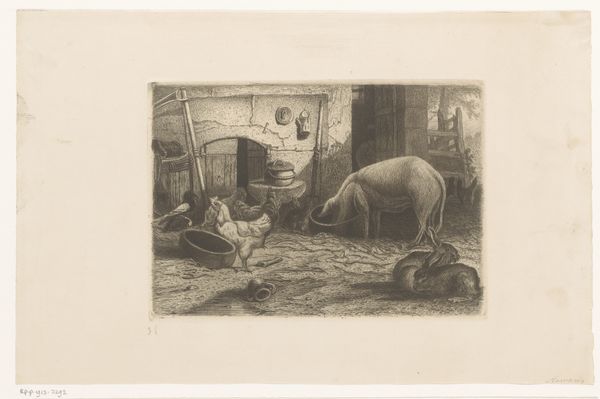
drawing, pencil
#
pencil drawn
#
drawing
#
ink paper printed
#
pencil sketch
#
pencil drawing
#
pencil
#
genre-painting
#
realism
Dimensions: height 191 mm, width 280 mm
Copyright: Rijks Museum: Open Domain
Curator: What strikes me immediately about this pencil drawing, "Kippen voor een muur," created by Uberto dell' Orto sometime between 1858 and 1886, is its muted, almost melancholic tone. The scene depicts chickens in a humble interior space, rendered in soft grays. Editor: It certainly evokes a sense of quiet domesticity, but I think it also speaks to broader socio-political themes of the time. Genre paintings like this often romanticized rural life, sometimes obscuring the hardships faced by many. How do you read the image's visual language? Curator: The chickens themselves, of course, carry a wealth of symbolic associations. Throughout history, they've represented everything from vigilance and courage to simple-mindedness and cowardice. The contrast between the chickens freely roaming inside and the structures of baskets and enclosure points to confinement, perhaps even reflecting social restrictions of the era. Editor: Interesting. It's tempting to view them through a feminist lens; are the chickens, perhaps, symbolic of women's roles within the domestic sphere during the 19th century? The modest materials used in the piece—pencil, ink, paper—also speak to a particular social strata. Curator: I think that’s a very valid interpretation. Dell' Orto's work is situated in a very interesting position where art and social critique could converge. Also, consider the realism style. How could Dell' Orto utilize realism as a way of conveying particular perspectives or commentary in that specific time? Editor: It pushes us to confront our present and continuously rethink the past. Those chickens in front of that broken wall become such meaningful icons. Curator: Exactly! We're constantly renegotiating what those representations mean in today’s reality.
Comments
No comments
Be the first to comment and join the conversation on the ultimate creative platform.
